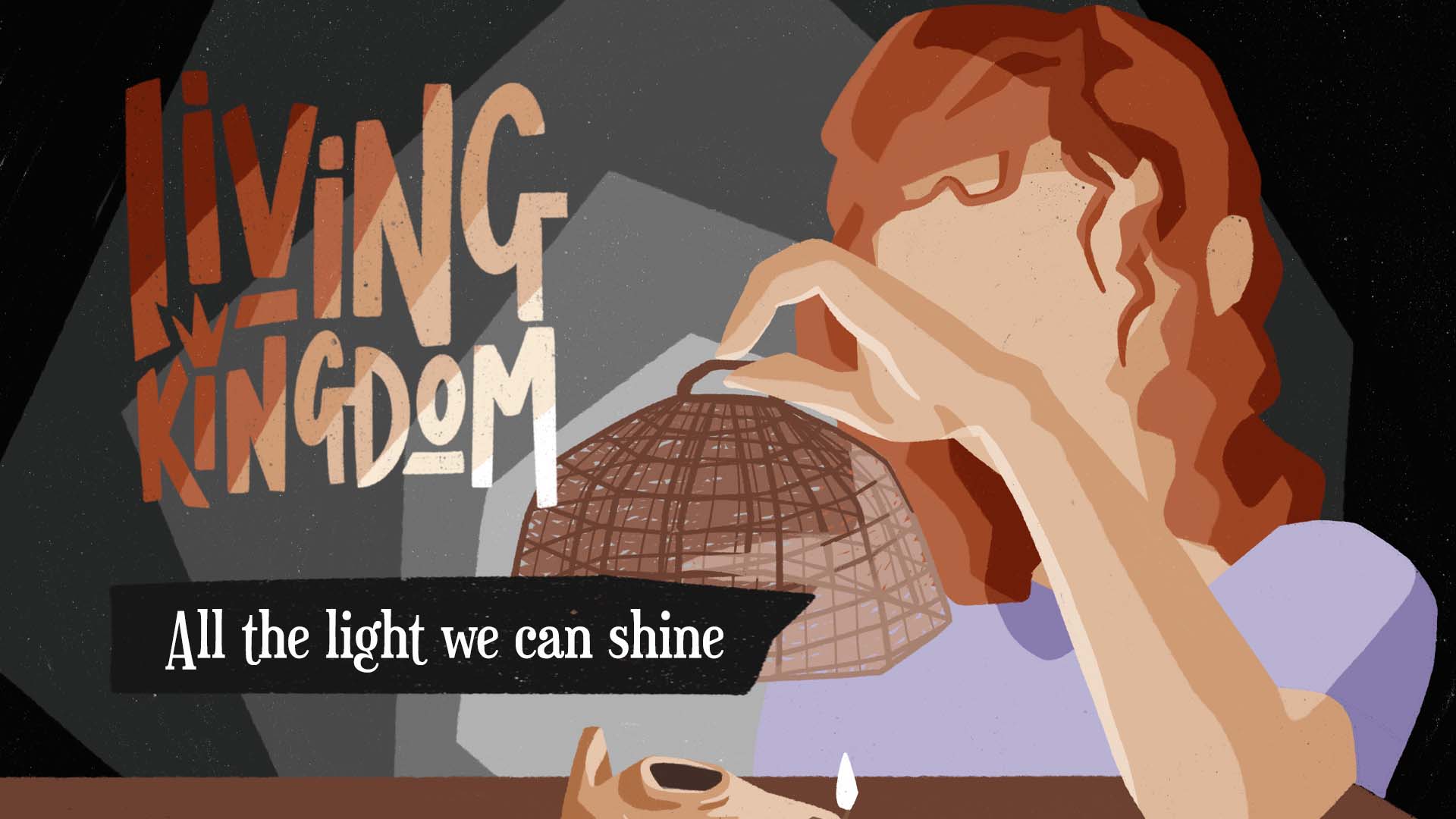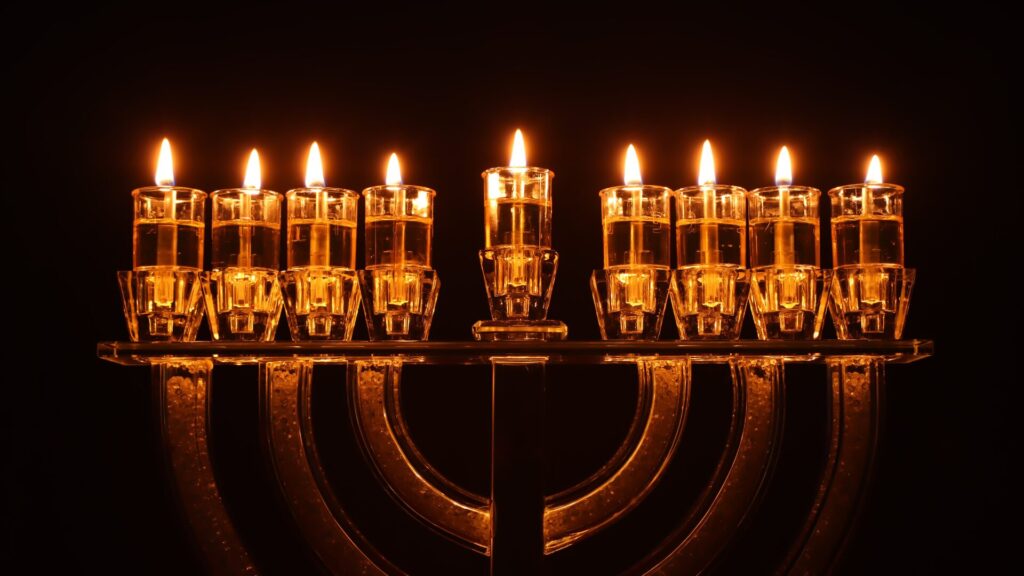Parable of the lamp on a stand
“You are the light of the world. A town built on a hill cannot be hidden. Neither do people light a lamp and put it under a bowl. Instead they put it on its stand, and it gives light to everyone in the house. In the same way, let your light shine before others, that they may see your good deeds and glorify your Father in heaven” (Matthew 5:14–16).
With a sinking heart, I read the news of another Christian ministry falling apart because of failures of leaders, mistreatment of people and misuse of donations. The high-profile leader—in this case, someone I have met, admired their work and read their book—“will not be returning” to their position of leadership and the board is working to salvage what they can from the organisational wreckage. I am saddened by another ministry gone wrong and frustrated by yet another blow to the reputation and witness of faith and the church.
Disheartening as such stories are, perhaps we ought not be surprised by the attention they receive. A light has dimmed, perhaps even gone out. People notice. What people of faith, churches and faith-based organisations do matters. Jesus said so.
The Gospels include four brief parables—only a couple of verses each time (see Matthew 5:14–16; Mark 4:21, 22; Luke 8:16, 17; 11:33)—describing lights, lamps and how they are best used. They use imagery of light in darkness, what we can see and what others see when they observe how we live in the world.
John is the only Gospel that does not include a version of the parable of the lamp, but it uses images of light and darkness throughout. This is one of the key metaphors to explain Jesus: “his life brought light to everyone. The light shines in the darkness, and the darkness can never extinguish it” (John 1:4, 5).1 Later, Jesus would be even more explicit: “I am the light of the world. If you follow me, you won’t have to walk in darkness, because you will have the light that leads to life” (John 8:12).
But as part of the Sermon on the Mount, Jesus said to His followers that “You are the light of the world” (Matthew 5:14). Like the hilltop city standing out as a beacon in an otherwise darkened landscape, the light shines simply because it is there and shines all the brighter for the surrounding darkness. Reading these various mini-parables together, the light of Jesus shines on and through His people with two particular applications: a light to live by and a light to live out.
Living in the light
The Gospel writers and Jesus Himself insisted on this imagery of Jesus as the light. Matthew’s Gospel summarised the early ministry of Jesus in Galilee using the prophecy from Isaiah 9: “the people who sat in darkness have seen a great light” (Matthew 4:16). The change of perspective and possibility that Jesus brought was as dramatic as day following night. No longer were people to live in darkness.
One of the temptations of religion is to accentuate the mysterious, emphasise the obscure and reserve the secrets for the “holy” people or chosen few. This was true of many pagan religions, many of the religious leaders of Jesus’ time and the gnostic heresy in the early church. It continues to be seen in conspiracy thinking and various faith-like superstitions and prosperity theologies of folk religion today. But this is not the faith or light of Jesus.
Those who found and followed Jesus were recipients of this light, and this was to be reflected in their understanding of faith. Jesus’ coming was a new revelation, a new light dawning in a darkened world and growing to fill the whole earth: “A lamp is placed on a stand, where its light can be seen by all who enter the house. For all that is secret will eventually be brought into the open, and everything that is concealed will be brought to light and made known to all” (Luke 8:16, 17).
The light of Jesus shines into our lives, our religion and our world. While there is always more to learn and explore, there is a simple beauty to the story and stories of Jesus that belies our complications, obfuscations and superstitions. This is the story in which we are called to live, the “life that leads to life”, the simple and demanding invitation to faith, hope and love.
Living out the light
So many metaphors have been employed to describe how the light of Jesus then shines out from His followers to the surrounding world. But Jesus said it was like a city on a hilltop—a collection of smaller lights that combine to create a larger illuminated landmark—or a single lamp that is placed in a prominent position to light the whole room. In both images, the light is not the thing itself, but how it serves to guide a late-arriving traveller or gives light to everyone in the house. “In the same way,” Jesus said, “let your good deeds shine out for all to see, so that everyone will praise your heavenly Father” (Matthew 5:16).
However we might explain it, people notice this light. It can be a beacon of hope, but people also notice when this light fails or is misdirected for our own praiseworthiness. It is frustrating that it is so much easier to get a headline or click for a story of a fallen leader than a faithful leader, but perhaps this is as it should be for the faithful: that their good deeds shine and that God is praised, even if not so publicly. Any opportunities we might have to shine are for accomplishing good and reflecting Jesus, invitations to collaborate with others and cooperate with God.
Together, our lights can shine brighter, but neither should we disregard the power of a single flickering flame to pierce the heaviest darkness. Quoting Isaiah again, Matthew reminded his readers that the Messiah would not “put out a flickering candle” in causing justice to be victorious (see Matthew 12:20). Every little light matters. And all the light we can shine.
Choosing to light
Simple and serving as the light into which we are called might be, Jesus’ lamp parables hold one more element. As Jesus asked rhetorically, “Would anyone light a lamp and then put it under a basket or under a bed? Of course not!” (Mark 4:21). All the Gospel references agree: no-one would use a lamp like that. It might seem nonsensical, but this possibility and choice remains. As too many ministry-gone-wrong stories attest, the temptations and real challenges of life and ministry can lead us to misuse, suppress or disregard the light we have been given.
In her memoir of the year she turned 13, Sharon Robinson—daughter of baseballer and civil rights campaigner Jackie Robinson—tells the story of 1963, during which she helped her family host fundraising concerts for the Civil Rights campaign, met Martin Luther King, Jr, and was part of the March on Washington and witness to Dr King’s “I have a Dream” speech. Drawn into the civil rights struggle through these personal and family experiences, she describes how devastated and broken she was to hear news of the Sunday-morning bombing of the 16th Street Baptist Church in September that year in which four girls her age were killed.
“It’s so horrible and unfair,” she sobbed to her father. Her father agreed, but reminded her that such news gave them two choices: “We can give up in defeat. Or we can use our anger and sorrow to keep fighting against hatred.”
Gathered with the rest of the family, they talked about the tragedy and their mission of faith, justice and love amid the ongoing struggle for freedom. Then Sharon describes her mother getting up from the couch to find the record of “one of our favourite gospel songs: ‘This Little Light of Mine.’ As the song starts, I look around the room at my family. And we are all together each of us listening to the words, knowing that we cannot give up.”2
The harder the task, the more necessary the light. The darker the night, the brighter it shines. The more lights we see go out, the more important “this little light of mine”. The more complex our world and the more people let us down, the more we need the light of Jesus. The more we reflect Jesus, the more the faithfulness of His followers will be noticed in ways that matter for good in our world.
“No-one lights a lamp and then puts it under a
basket . . .” Because Jesus is the light of the world, we are to light our world. He is all the light we can shine.
1. All Bible quotations are from the New Living Translation.
2. Sharon Robinson, Child of the Dream: A Memoir of 1963 (Scholastic Press, 2019), pages 226, 227.







